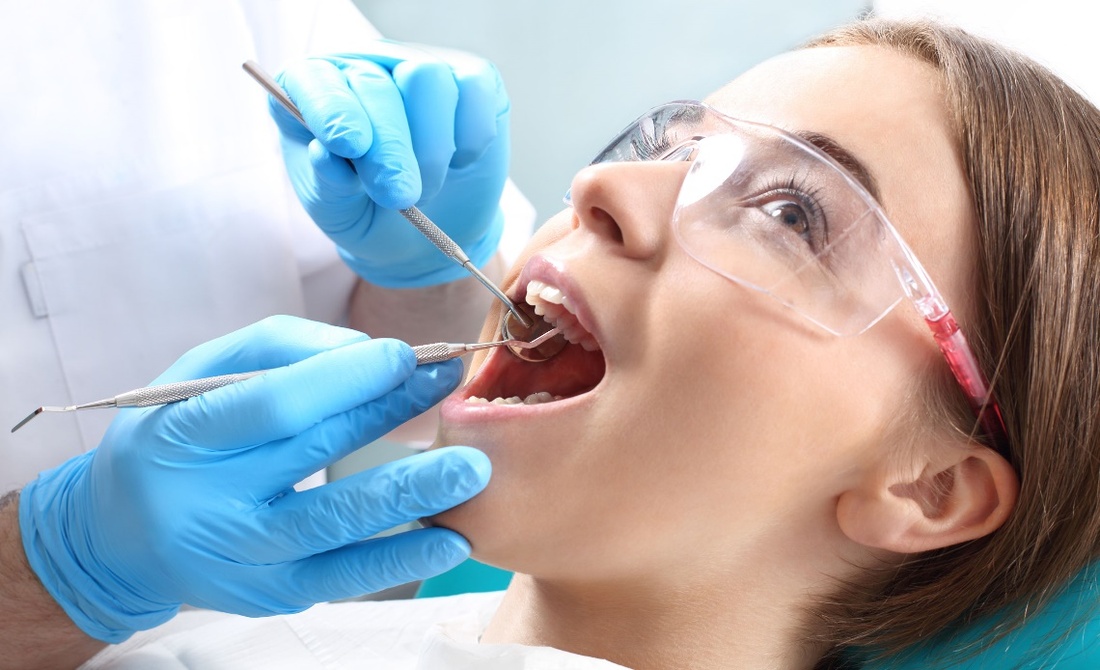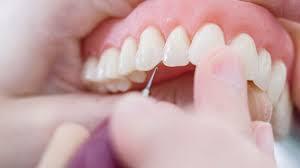Dental and oral health are vital components of general health and well-being. Poor oral hygiene can cause dental cavities, gum disease, heart disease, cancer, and diabetes. Keeping your teeth and gums healthy is a lifelong commitment. The earlier you start practicing good oral hygiene habits, such as flossing, brushing, and reducing your sugar consumption, the more stress-free it will be to avoid expensive dental procedures and long-term health complications.
One of the major responsibilities of a dentist is to promote good dental hygiene—this aids in preventing complications in your mouth or other parts of your body. A dentist also diagnoses and treats gum, tooth, and mouth problems. Dentists perform dental procedures using modern technology and equipment such as lasers, brushes, drills, scalpels, X-ray machines, and other medical tools. To avert the spread of germs or bacteria, they also wear defensive equipment such as gloves, masks, and safety glasses.
Among The Most Common Dental Tasks Are:

A dentist is responsible for various vital tasks related to maintaining oral health. Checkups are an essential part of the job and help patients stay on top of their oral health. In addition to general checkups, general dentistry includes necessary treatments performed at a regular dental office. Filling a tooth, performing a minor surgical procedure such as tooth extraction, and cleaning and polishing teeth
These Are The Benefit Of A Dentist To Your Health
1. Keep Your Teeth in Good Condition
Sometimes we reach a point where a tooth has become so decayed and rotten that it must be extracted. Because you only have one adult set of teeth, losing any of them permanently can hurt the overall state of your oral health and well-being. A variety of changes in your mouth may occur due to tooth loss, including the possibility of your teeth shifting by themselves. It could cause some discomfort and a complete transformation of your smile from what you are accustomed to.
2. Preventing Issues in the Future
Although you may believe that a dentist is only concerned with your teeth, several other aspects of dental health are considered. One of the advantages of regular dental visits is that the dentist will identify issues that may develop into more significant problems down the road if not addressed immediately. It is possible to receive treatment right away if they detect a small cavity forming or notice that your gums are in poor condition. Many people suffer from plaque buildup and gum disease that go unnoticed because they don't get to see a dentist or other professional quickly. A dentist can also check for any first signs of oral cancer or other severe illnesses in the mouth
3. Instruction in the proper practice of dental hygiene
The majority of the people are uninformed about adequately caring for their dental hygiene. Most people brush their teeth once a day and never floss their teeth. It may not seem to be a big deal at first, but it can lead to more severe problems in the long run. Washing your teeth after meals and flossing at least once per day can make a significant difference in the fight against bacteria in your mouth and the overall health of your teeth. Even simple habits, such as brushing your teeth after meals and flossing at least once per day, can make a difference. Maintaining regular dental checkups may be beneficial if you require a more personalized dental hygiene routine. It will ensure that you have professionals monitoring your oral health.
4. Assistance with Related Issues
If you have problems sleeping or getting headaches from grinding your teeth, you should consult your dentist. Some issues are related to your dental health that you may not even know about it. Identifying and treating these issues is another advantage of consistently visiting the dentist. However, even if your dentist cannot provide you with a solution that will completely resolve the problem, they will be able to refer you to the appropriate specialist.
5. Get Rid of Bad Breath
Being plagued by chronic bad breath is more than just a case of morning breath or overindulging in onions. A condition known as halitosis can develop due to repeatedly engaging in poor oral hygiene practices. It is not a problem that should be ignored or attempted to be resolved on your own. Arrange an appointment with your dentist so that you can determine precisely what is causing the odor and how to fix it. It may be a medical condition that requires immediate attention.
6. Provide you with peace of mind
Experiencing dental pain or having concerns about your oral health can keep you from sleeping at night. There are some issues that, if left untreated, have the potential to have severe consequences, such as leaving a decayed tooth in your mouth for an extended period. This is why it is essential to visit your dentist regularly. When you visit a dentist, they will be able to keep track of what is going on in your mouth, provide pain relief, and make recommendations for follow-up care. All of these components contribute to your ability to live with greater peace of mind and less anxiety about the severity of a problem that may arise.
7. Maintain a pleasant demeanor.
It may appear to be one of the more superficial benefits of regular dental visits, but it has several additional benefits beyond the obvious. Anyone would probably agree that having a pleasant smile would like to have. Visiting the dentist often can assist you in accomplishing this. Regular dental cleanings and following the dentist's instructions on caring for your teeth are essential to maintaining your pearly whites. It could be caused by wearing braces or having some dental work done on your teeth. Whatever the situation, a dental professional can guide you in the right direction to help you achieve the best smile possible and increase your self-esteem.
When it comes to dental oral health care, it does not limit to a dentist; various oral health care providers may also be involved in caring for your teeth, gums, and mouth. Below are these different health care providers:
8. Public Dental Health Clinics
Dental public health clinics enhance dental health through community-wide efforts. The clinics educate the general public through group dental care programs to prevent and control dental diseases on a community-wide scale. Dental public health clinics provide services such as locating a dentist, creating dental care programs for schools, providing community fluoridation information, answering common oral health questions, and offering other oral health assistance materials to their community.
9. Endodontist
An endodontist is a dentist who concentrates on the reasons, diagnosis, avoidance, and treatment of diseases and injuries to the human dental nerve. This specialist may perform simple to complex root canal treatments and other surgical root procedures.
1. Radiologist, Oral and Maxillofacial
A radiologist is an oral health care professional specializing in acquiring and interpreting all types of X-ray images and data used to diagnose and manage diseases, disorders, and conditions of the oral and maxillofacial region.
2. Oral medicine
Oral medicine is a dental specialty that provides medically complex patients with care by integrating medicine and oral health care. It includes diagnosing and treating oral diseases such as oral cancer, lichen planus, candidiasis, and aphthous stomatitis. In addition, oral medicine evaluates complex medical patients before open-heart surgery, chemotherapy, and cancer therapy, as well as hospital inpatients.
3. Anesthesiologist in Dentistry
Recently, dental anesthesiology was recognized as a dental specialty. A dentist anesthesiologist uses advanced general and local sedation to control patients' pain and discomfort during procedures
4. Pathologist of the mouth
Oral pathologist is a dentist who studies the sources of diseases that affect the oral assemblies (lips, teeth, cheeks, jaws) and other parts of the face. Oral pathologists observe and diagnose biopsy, tissue, and lesion samples referred to them by other oral health care providers.
5. Maxillofacial and Oral Surgeon
This dental professional performs various surgical procedures on the entire face, mouth, and jaw. Oral and maxillofacial surgeons provide reconstructive and dental implant surgery to accident victims who have suffered facial injuries. They treat patients with jaw tumors and cysts. They also place dental implants. These are all procedures an oral surgeon may perform Simple tooth removals, complex removals, involving removal of soft tissue or covering bone or remaining roots, impacted teeth (especially wisdom teeth), soft tissue biopsies, elimination of tumors in the oral cavity, implant placing, complex jaw rearrangement surgeries including facial or bite discrepancies, broken cheek or jaw bone repair, and soft tissue (cleft palate or lip) repair
6. A Periodontist
A periodontist is a dentist who focuses on the diagnosis, treatment, and prevention of diseases of the soft tissues of the mouth (the gums) and the supporting structures (bones) of the teeth (both natural and artificial teeth). This dentist diagnoses and treats gingivitis (gum inflammation) as well as periodontitis (gum disease) (gum and bone disease). Superficial and deep pocket cleanings, root planing, crown lengthening procedures, soft tissue and bone grafting, gingival or flap procedures, soft tissue recontouring or removal (gingivoplasty or gingivectomy), hard tissue recontouring (osteoplasty), and implant placement are all procedures that a periodontist may perform.
7. Prosthodontist
A prosthodontist is an oral health care provider who, unlike a general dentist, specializes in repairing natural teeth and replacing missing teeth on a much larger scale.

The prosthodontist replaces missing or extracted teeth with artificial teeth (dentures) or crowns (caps). The prosthodontist is also heavily involved in tooth replacement with dental implants. Furthermore, prosthodontists work with patients who have head and neck deformities to replace missing parts of the face and jaws with artificial substitutes.
How Good Oral Hygiene Contribute To Your Health
Excellent oral hygiene not only protects your teeth but it's also a significant factor in avoiding more severe health issues and giving you overall positive health and confidence; below are the impacts of good oral hygiene on your health.
1. Prevent Cavities and gum disease
The most obvious benefit of maintaining good oral hygiene is the prevention of cavities and gum disease at the most fundamental level. Brushing and flossing correctly at least twice a day and twice a week can help prevent these common dental problems. Periodontal disease, also known as gingivitis, is an inflammation of the gums that occurs as the first stage of gum disease. It is caused by the gathering of plaque around your teeth. When you brush your teeth, it can cause swollen gums and teeth that bleed when you do so. Plaque is an accumulation of food and bacteria, which appears in everyone's mouth, and it needs to be cleaned off regularly to keep your mouth healthy. Plus, applying minerals and other desensitizers to your teeth with toothpaste on your toothbrush is the most effective method of doing so.
2. Stops Bad Breath
Have you ever offered a mint to a coworker or significant other to be able to speak with them while standing nearby? Breathlessness, also known as halitosis, is caused by bacteria in your mouth that eventually hardens to form plaque. Plaque can be removed from your teeth with regular brushing and cleanings, and calculus can be avoided with regular cleanings. It's also a low-cost and effective way to remove food and bacteria from your mouth while also keeping your breath smelling fresh.
3. Maintains the radiance of your smile
In addition to whitening treatments, regular brushing with a tooth-whitening, fluoride toothpaste can help to remove any stains or discoloration from your teeth without the need for any additional treatments. Gentle abrasives in toothpaste remove debris and surface stains, aiding in maintaining a fresh, healthy, and white appearance for your teeth. Having a confident, beautiful smile is associated with various advantages, including improved job prospects and interpersonal relationships.
4. It Prevents the growth of more severe diseases.
Maintaining good oral hygiene is also associated with improved overall health, which can help you avoid problems such as diabetes, heart disease, and dementia. Recent research has revealed that patients with heart disease are more likely than the general public to harbor the bacteria that cause gum disease. If the gums are affected by an infection, they can make their way into your bloodstream and raise your chance of a heart attack or stroke. Any form of gum disease can make it more challenging to maintain proper blood glucose control. The relationship between severe gum disease and diabetes is two-way. Furthermore, severe gum disease may not only increase the risk of developing diabetes, but it also has the potential to affect blood glucose control and contribute to the progression of diabetes in those who already have it. Poor oral health can also increase your chances of developing dementia